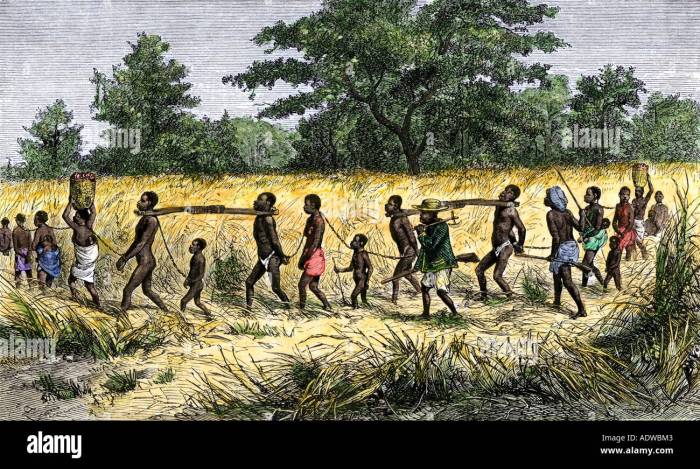Embarking on a journey through Saltwater Slavery Chapter 1 Summary, we delve into the historical complexities and enduring impact of this harrowing chapter in human history. This comprehensive exploration unravels the origins, causes, and consequences of saltwater slavery, shedding light on one of the darkest periods in the annals of human civilization.
Saltwater slavery, a cruel and inhumane practice, involved the forced transportation of millions of Africans across the Atlantic Ocean to serve as unpaid labor on plantations in the Americas. This abhorrent trade, driven by economic greed and colonial expansion, left an indelible scar on the lives of countless individuals and the fabric of societies.
Introduction: Saltwater Slavery Chapter 1 Summary

Saltwater slavery emerged as a brutal system of forced labor during the 15th century, shaping the transatlantic slave trade and leaving an enduring legacy of human suffering. Defined as the involuntary transportation of enslaved Africans across vast bodies of water, primarily the Atlantic Ocean, saltwater slavery became a cornerstone of the global economy.
Examples of saltwater slavery include the transatlantic slave trade between Africa and the Americas, the Indian Ocean slave trade connecting East Africa to the Arabian Peninsula and South Asia, and the intra-Asian slave trade within Southeast Asia.
Causes of Saltwater Slavery
Economic Factors
The demand for labor in the Americas, particularly in the sugar, tobacco, and cotton plantations, fueled the growth of saltwater slavery. The abundance of cheap labor from Africa provided plantation owners with immense profits.
Political and Social Conditions
European colonialism and imperialism created the political and social conditions that enabled saltwater slavery. The establishment of colonies in the Americas and Africa provided the infrastructure and legal framework for the slave trade.
Role of Colonialism and Imperialism, Saltwater slavery chapter 1 summary
Colonialism and imperialism played a pivotal role in the rise of saltwater slavery. European powers sought to control vast territories and exploit their resources, including human labor. The slave trade became a tool for acquiring and maintaining control over these colonies.
The Middle Passage

The Middle Passage refers to the harrowing journey enslaved Africans endured during their transportation from Africa to the Americas. Packed into overcrowded and unsanitary ships, they faced unimaginable horrors, including disease, starvation, and brutality.
The Middle Passage had a profound impact on enslaved Africans, leaving both physical and psychological scars. The high mortality rate and the dehumanizing conditions inflicted lasting trauma on those who survived.
Life on Plantations
On plantations, enslaved Africans were forced to perform backbreaking labor under harsh conditions. They worked long hours in the fields, subjected to physical and psychological abuse, and denied basic human rights.
Despite their oppression, enslaved Africans resisted and rebelled against their enslavement. They engaged in various forms of resistance, including sabotage, work slowdowns, and outright revolts.
The Abolition of Saltwater Slavery

Factors Leading to Abolition
The abolition of saltwater slavery was a gradual process influenced by several factors, including the rise of abolitionist movements, economic changes, and international pressure.
Role of Abolitionist Movements
Abolitionist movements played a crucial role in raising awareness about the horrors of slavery and advocating for its abolition. They organized campaigns, lobbied governments, and provided support to escaped slaves.
Impact of Abolition
The abolition of saltwater slavery had a transformative impact on the lives of enslaved Africans. It marked the end of the transatlantic slave trade and paved the way for the abolition of slavery in many countries.
Q&A
What is the significance of the Middle Passage in saltwater slavery?
The Middle Passage refers to the horrific journey enslaved Africans endured during their transportation across the Atlantic Ocean. It was a period of unimaginable suffering, disease, and mortality, leaving a lasting psychological and physical impact on those who survived.
How did colonialism contribute to the rise of saltwater slavery?
Colonialism created a system of economic exploitation and racial hierarchy that justified the enslavement of Africans. European powers established colonies in Africa and the Americas, using enslaved labor to extract resources and generate wealth.
What factors led to the abolition of saltwater slavery?
The abolition of saltwater slavery was the result of a complex interplay of factors, including the rise of abolitionist movements, economic changes, and growing public awareness of the horrors of slavery.
